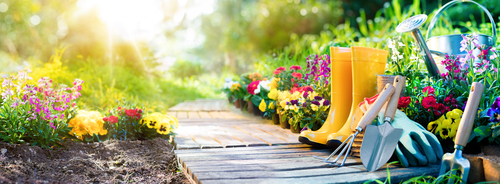Weeds, lawns, fences and overgrown bushes are the major issues with gardens, but the disputes often arise because of confusion over who is responsible for dealing with these common problems.
According to a poll by TDS amongst 2,000 landlords and letting agents, 75% believe garden upkeep is down to the tenant. The problem is that the tenant doesn’t always know this.
There is no hard rule about responsibilities but there are some general guidelines about garden responsibilities in rentals.
General upkeep such as weeding, mowing the lawn, raking leaves, keeping bushes and trees trimmed, and keeping the garden free of rubbish will all typically land with the tenant.
Repairs to exterior areas like fences, drains, walls, paving, steps and decking, for example, will likely fall to the landlord as part of their legal responsibility to keep the property safe and in good repair.
Tip 1: Make it crystal clear to the tenant what they are expected to maintain in and out of the property. Be specific about areas of the gardens and who is responsible for each aspect.
Tip 2: Conduct a thorough inventory at check-in and take date stamped photographs of the garden in its current state at the start of tenancy. This will allow all parties to have a benchmark to work to. Advise tenants they must return the garden to that condition at the end of tenancy.
Make gardening easier
It certainly helps to have green-fingered tenants but for those who need a helping hand, there are ways to make gardening easier in a rented property.
Tip 3: Keep your garden design simple if you can. Avoid busy flower beds and difficult-to-care-for plants. Opt for low maintenance borders and slow-growing trees or bushes.
Tip 4: If the property has a shed or garage, provide gardening equipment for the tenant such as a lawn mower, rake and basic tools.
Communicate regularly
Disputes of all kinds tend to happen when communication has broken down or misunderstandings have occurred. Introduce open communication channels at the start of tenancy and encourage a culture of open conversation.
Tip 5: Make it easy for tenants to report issues as they arise. This will prevent those issues from becoming bigger and more costly ones in the future. Keep communications centralised and secure so all parties can see status and monitor progress of issues raised.
Tip 6: Consider sending seasonal reminders to tenants that offer useful advice on how to maintain gardens at different times of the year.
Conduct seasonal checks
Because gardens can change so drastically from season to season, it pays to inspect properties at different times of the year. Spring and autumn are particularly good times to visit as each can highlight different issues in the exterior areas of a property.
Tip 7: Arrange mid-tenancy inspections to check the condition of outside areas. Spring is a good time to visit a property before gardens grow. You will be able to see any structural issues more easily and repairs will more straightforward. This will also give you the opportunity to clarify, remind and advise tenants about garden maintenance.
Rental properties with gardens continue to rise in popularity. They often command a higher rental and don’t need to come with higher disputes if you follow the tips above.
With Inventory Hive, tenants have the ability to feedback on check-in reports at the start of the tenancy digitally which gives them opportunity to raise any potential issues and reduce the chance of a dispute.
Discover how to keep on top of disputes, inventories and tenancy checks with the Inventory Hive.
Book a demo with Inventory Hive here.







.jpg)





.png)


.png)



Join the conversation
Be the first to comment (please use the comment box below)
Please login to comment